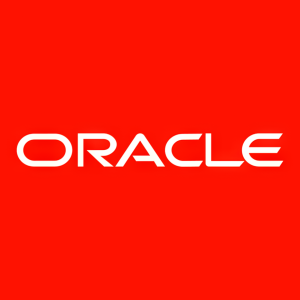Oracle Helps Organizations Achieve the Highest Levels of Scalability and Availability, and Address Data Sovereignty Requirements
With Oracle Globally Distributed Autonomous Database powered by AI and ML, customers can cut operational complexity and costs
As a full-featured, converged database, Globally Distributed Autonomous Database simplifies the development and use of distributed databases for mission-critical applications by supporting virtually any data type, workload, and programming style at scale. Existing SQL applications can use distributed databases without having to be rewritten. In order to meet the needs of each application, Oracle Globally Distributed Autonomous Database supports more data distribution, replication, and deployment methods than other distributed databases.
"Organizations with global operations have specific application demands around data sovereignty, scale, and availability that can vary between continents and countries. These demands can be addressed by a mission-critical distributed database architecture capable of supporting global distribution," said Juan Loaiza, executive vice president, Mission-Critical Database Technologies, Oracle. "The new Globally Distributed Autonomous Database meets this need and enables customers to leverage a serverless, elastic, and auto-scale architecture to dramatically lower costs. With its converged database capabilities, our new Globally Distributed Autonomous Database is the simplest, most functional, and most mission-critical distributed database cloud service in the world."
Distributed databases can be difficult to deploy and manage due to the large number of servers deployed across multiple locations. Globally Distributed Autonomous Database eliminates this complexity by using and extending Autonomous Database's AI and ML-driven automation with automatic data distribution and shard management. Administrators can manage the distributed database as a single logical database, and use automated provisioning, tuning, scaling, patching, and security capabilities to avoid time-consuming manual tasks and potential errors. In addition, automatic database scaling per individual shard enables customers to ramp up and draw down resources to meet demand and minimize consumption and cost.
Additional Oracle Database Enhancements
With Oracle's integration of generative AI across its technology stack, developers have access to new tools, including Autonomous Database Select AI, to integrate AI and ML into their applications. Select AI can translate natural language questions in a conversational thread into SQL queries using large language models (LLMs). With Globally Distributed Autonomous Database, the SQL query is automatically routed to the appropriate country or shard to generate the answers. In addition, Oracle Database 23c with Raft quorum-based consensus replication will provide automatic sub-3-second application failover with zero data loss. This and AI Vector Search with retrieval augmented generation (RAG) integration will be available later this year.
Customer and Analyst Commentary
"Oracle's Globally Distributed Database allows us to comply with data residency regulations by automatically distributing the data to various countries transparent to the application users, in a very economical way," said Bilal Ramadan, chief delivery officer, Munich Re HealthTech.
"Many database systems feature one or another sharding technique to help users manage a set of data across multiple databases and, in some cases, achieve a distributed database capability. These usually involve placing a heavy burden on application developers to write code that will segregate and orchestrate shard updates in such a way that they avoid conflicting data and illogical data combinations. Oracle's approach to sharding avoids all that, making application interaction with databases transparent and reliable," said Carl Olofson, research vice president, Data Management Software, IDC. "In addition, Oracle's proven RAC clustering technology extended to this distributed database approach enables it to offer a rich variety of data distribution models, replication methods, and shard deployment options that are easy to manage, straightforward to develop against, and enable Oracle Database to meet unique customer requirements. Taken together, these capabilities make Oracle a key player in the distributed database category."
Additional Resources
- Read the technical blog
- Read what industry analysts are saying about Globally Distributed Autonomous Database
- Learn more about Oracle Autonomous Database
- Learn more about AI capabilities in Autonomous Database
About Oracle
Oracle offers integrated suites of applications plus secure, autonomous infrastructure in the Oracle Cloud. For more information about Oracle (NYSE: ORCL), please visit us at www.oracle.com.
Trademarks
Oracle, Java, MySQL and NetSuite are registered trademarks of Oracle Corporation. NetSuite was the first cloud company—ushering in the new era of cloud computing.
![]() View original content to download multimedia:https://www.prnewswire.com/news-releases/oracle-helps-organizations-achieve-the-highest-levels-of-scalability-and-availability-and-address-data-sovereignty-requirements-302077925.html
View original content to download multimedia:https://www.prnewswire.com/news-releases/oracle-helps-organizations-achieve-the-highest-levels-of-scalability-and-availability-and-address-data-sovereignty-requirements-302077925.html
SOURCE Oracle









